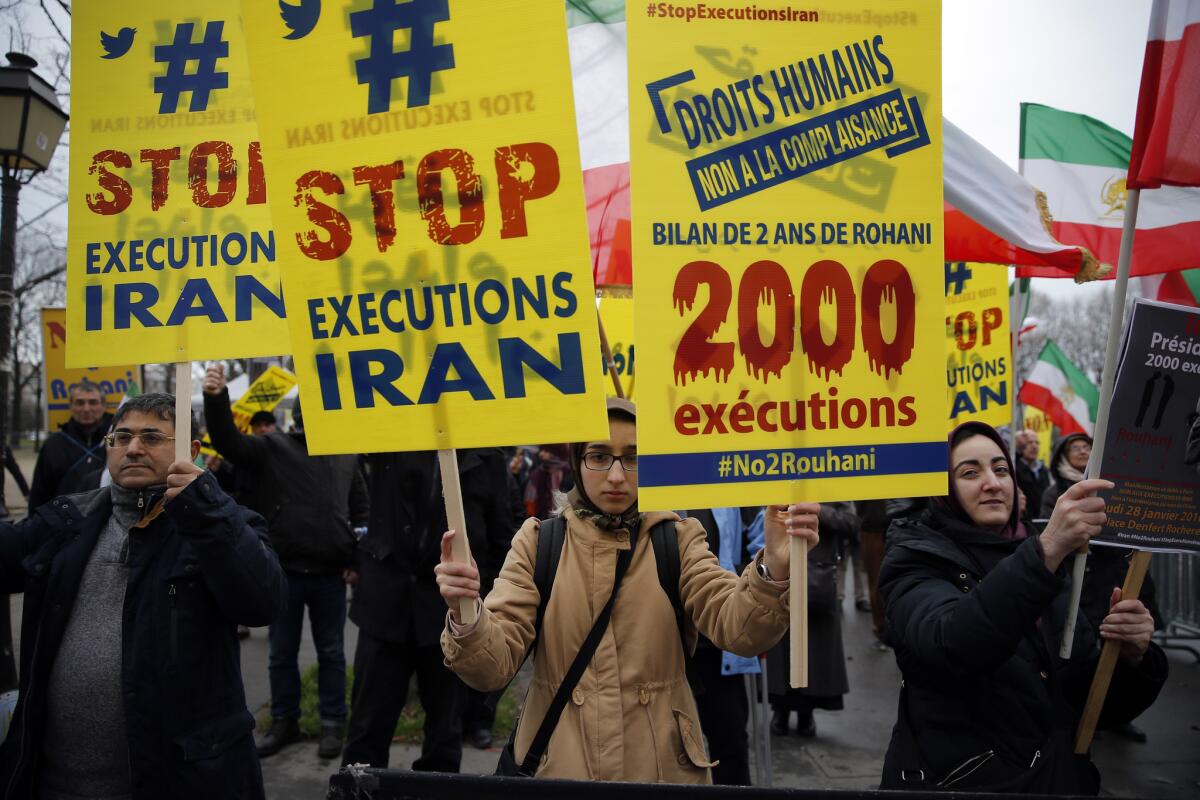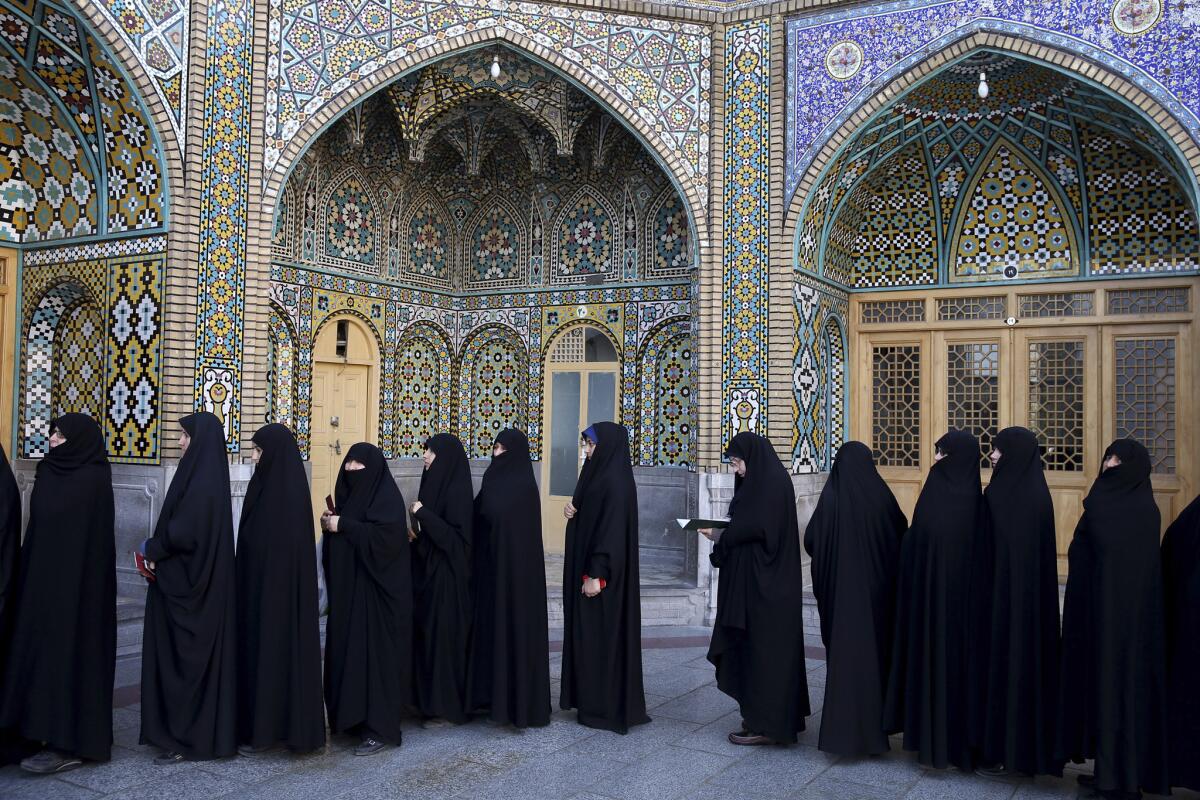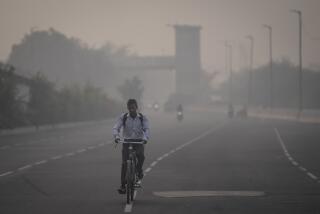Iran’s poor human rights record needs continued monitoring, activists say

Demonstrators protest Iranian President Hassan Rouhani’s visit to Paris in January 2016. Iran executed at least 966 prisoners in 2015, the highest number in over two decades, according to Ahmed Shaheen, the United Nations special rapporteur on human rights in Iran.
Even as it is being welcomed back into the international community, Iran is continuing to violate the most basic civil and political rights of its people and needs continued monitoring, advocates who are pushing for greater freedoms in the Islamic Republic contend.
The activists, including dozens of international human rights groups, insist Iran has continued a disturbing pattern of abuses including increased executions and decreased opportunities for women.
To force change, they have called on the United Nations Human Rights Council to renew its agreement with a special rapporteur, Ahmed Shaheed, to continue monitoring and reporting on the human rights situation in the country. The council could vote Thursday or earlier to extend monitoring.
The accusations come on the heels of the implementation of a landmark nuclear deal between Tehran and six world powers, including the United States. The Obama administration says the agreement would prevent Iran from obtaining a nuclear weapon, and in return for Tehran’s cooperation, international sanctions on Iran have been lifted.
Several of the activists suggested that enthusiasm over the nuclear deal and prospects of future trade with Iran are causing the international community to turn a blind eye to Iran’s human rights violations. Since sanctions were lifted in January, foreign business delegations have flooded Iran and multibillion-dollar deals have been brokered.
“Although this is some progress on the surface, we don’t see any dramatic change toward democracy,” said Maryam Faghihimani, an Iranian advocate for women’s rights, entrepreneurship and the right to education. “On the contrary, we see a lot of backward movement with regards to human rights issues and violations in Iran today.”

Women stand in line at a polling station during the parliamentary and Experts Assembly elections in Qom, Iran, on Feb. 26, 2016.
President Hassan Rouhani has remained largely mum on human rights. While addressing the opening of the United Nations General Assembly in October, for instance, he focused on the nuclear agreement and underscored Iran’s commitment to fighting terrorism, but made no mention of improving human rights.
In his latest report to the United Nations, Shaheed acknowledged that Iran had taken some strides toward reform, such as granting criminal suspects the right to an attorney. But such safeguards, he said, are not always implemented.
The number of executions last year, for instance, accelerated and reached its highest level in two decades — 966 prisoners put to death, Shaheed said in his report. He expressed particular concern with the number of juvenile offenders executed and fundamental flaws in the administration of justice.
Other violations include restrictions on freedom of expression and assembly, the arbitrary detention of journalists and political and civic figures, discrimination against ethnic and religious minorities, and violence against women and the suppression of their rights, advocates said.
Darya Safai, an Iranian women’s rights advocate who was invited to Geneva by the independent monitor U.N. Watch to address the Human Rights Council, said women’s rights are deteriorating by the year. Safai said the decline has been particularly dramatic since Rouhani, the architect of the nuclear deal, took office in 2013 on a platform of “moderation and prudence.”
Speaking from Geneva, Safai said that since Rouhani took office, a 50% quota had been imposed on the number of women studying at higher education institutions. Before Rouhani, 67% of students at universities were women, Safai said.
Women in Iran make up only 12% of the workforce, lagging behind even those of Pakistan and Afghanistan. Safai said as many as a half a million women had lost government administrative jobs since Rouhani took office.
Women face some surprising restrictions — concerts featuring female musicians are often canceled and women are barred from attending volleyball matches, Safai said.
Analysts have said Rouhani, who is up for reelection next year, is unlikely to push for controversial social change, such as expanding rights for women.
“If Iran’s [special rapporteur] mandate is not renewed — despite its ongoing widespread, gross and systematic abuses — this would only be a result of Tehran’s political influence and backroom deal-making,” said Hillel Neuer, executive director of U.N. Watch.
For more news on global sustainability, go to our Global Development Watch page.
And follow me on Twitter: @AMSimmons1
More to Read
Start your day right
Sign up for Essential California for news, features and recommendations from the L.A. Times and beyond in your inbox six days a week.
You may occasionally receive promotional content from the Los Angeles Times.







